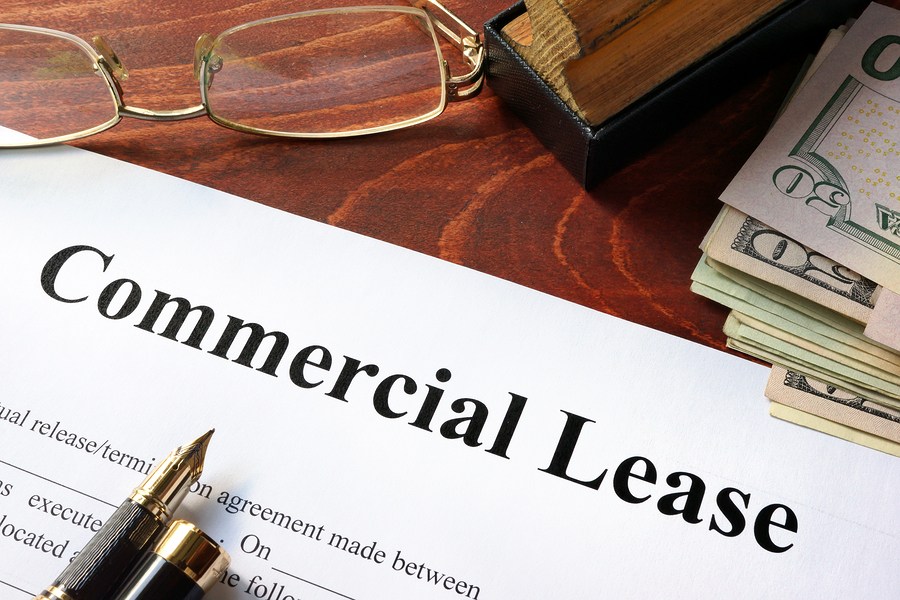
Gaining a Better Understanding of Leases
Leases can, and do, play a significant role in the buying or selling of businesses. It can be easy to overlook the topic of leases when focusing on the higher profile particulars of a business. However, leases are a common feature of many businesses and simply can’t be ignored.
Leases and Working with Your Attorney
Whenever a small business is sold, it is common that leases play a major role. In general, there are three different types of leasing arrangements. (If you have any questions about your lease, then you should consult with your attorney. Please note that the advice contained in this article shouldn’t be used as legal advice.)
Three Different Lease Options
In the next section, we will examine three of the most common types of leases. The sub-lease, new lease and assignment of lease all function in different ways. It is important to note that each of these three classes of leases can have differing complicating factors, which again underscores the value and importance of working with an attorney.
The Sub-Lease
The sub-lease, just as the name indicates, is a lease inside of a lease. Sellers are often permitted to sub-lease a property, which means that the seller serves as the landlord. It is key to note, however, that the initial landlord still has a binding agreement with the seller. Sub-leasing requires the permission of the initial landlord.
New Lease
If the previous lease on a property expires or is in need of significant change, a new lease is created. When creating a new lease, the buyer works directly with the landlord and terms are negotiated. It is customary to have an attorney draft the new lease.
Assignment of Lease
Assigning a lease is the most common type of lease used when selling a business. The assignment of a lease provides the buyer with use of the premises where the business currently exists; this works by having the seller “assign” all rights of the lease to the buyer. Once the assignment takes place, the business’s seller typically has no further rights. Also, it is common that the landlord will have wording in the contract that states the seller is still responsible for any part that the buyer doesn’t perform as expected.
Disclose All Lease Issues at the Beginning of the Sales Process
No one likes surprises. If there is a problem with your lease, then this is something that should be disclosed in the beginning of the sales process. Not having a stable place to locate your business can be a major problem and one that should usually be addressed before a business is placed for sale. Buyers don’t like instability and unknowns. Not having a firm location is definitely an issue that must be resolved.
Buyers want to see that you have made their transition from buyer to owner/operator as easy as possible. Providing clarity of issues, such as leasing, will help you attract a buyer and keep a buyer. Regardless of whether it is dealing with leasing issues or other key issues involved in buying or selling a business, working with a business broker can help you streamline the process and achieve optimal results.
Copyright: Business Brokerage Press, Inc.
Read More
What is Really in the Mind of Your Buyer?
It is always important to try and put yourself “in the other person’s shoes.” This fact is of paramount importance when dealing with prospective buyers. Thinking like a prospective buyer could, in fact, be the difference between selling your business and not selling your business. Yet, it is important to continue to put yourself in your buyer’s shoes during the entire sales process.
It is easy to think that because everything is going smoothly with the sale of your business that the tough part is behind you. That may be true, but then again there could still be problems ahead. Issues can come up at a moment’s notice when either your prospective buyer or his or her advisor raises a red flag. Additionally, the larger the business, the greater the complexity. This translates to the greater the risk of problems arising.
The “Little Things” that Could End Up Quite Big
Financial statements are of considerable importance. Quite often you’ll see contingencies regarding financial statements and/or business tax returns, so be ready and be organized. Lease issues is another common category for contingencies. Falling under the lease issue umbrella are topics such as whether or not the seller has agreed to stay on, or issues regarding the property or needs associated with the property if it is a rental.
Other common contingencies can include issues arising from equipment and fixtures that are being included with the sale. These are areas that could be easy to overlook, but they can serve to throw a major wrench into the workings of a deal. The so-called “little things” can cause a deal to fall apart.
3 Key Steps for Preventing Disruptions from Contingencies
Step One – Create a Comprehensive List
One easy move you can make to prevent disruptions from contingencies is to make a list of all FF&E or furniture as well as fixtures, equipment or any other items that could be included with the sale. If an item is not included be sure to remove it entirely.
Likewise, if an item is inoperable then repair it ahead of time. Or at the bare minimum, you could make a list of items that are currently inoperable and include those items in your list. Remember, you don’t want a last-minute surprise or misunderstanding to jeopardize your sale.
Step Two – Check Your Leases
Problems with leases can send deals spiraling out of control. It is a prudent investment of your time to look at things like your leases. You’ll want to make certain that there are no issues that could be viewed as problematic. If there are issues, then it is in the best interest of the deal that you disclose this information at the start of any deal. After all, you don’t want to waste anyone’s time, including your own.
Step Three – Predict Questions and Have Answers Ready
The time you invest in predicting potential questions and having the answers to those questions ready is time very well spent. You’ll look prepared and that helps build trust.
Be ready to answer questions that are likely to arise such as are you going to stay on with the business for a given period of time and what will be the cost, if any, of you doing so? What about employees staying on? Are there legal issues that should be considered? Being able to answer these kinds of questions is a prudent step.
Considering the needs of your prospective buyer will help you make a sale. In selling a business, there is no replacement for being organized and prepared.
Copyright: Business Brokerage Press, Inc.
Read More
Does Your Asking Price Truly Matter?
It is no great secret that sellers often aim high. The logic sellers use is simple, “I can always reduce my price.” While that is true, sellers do need to remember that if the asking price is initially too high, buyers won’t even take a serious look. In short, your selling price must be bound by reality and what the market will bear.
Pricing Does Matter
When an asking price is too high buyers will simply move on. But in the meantime, you may have lost a qualified buyer that would have been very interested at a lower price. Pricing isn’t a factor that should be played with, instead it should always be treated in as professional of a manner as possible.
Instant Millionaire? Maybe and Maybe Not
Some sellers want to become instant millionaires and sell their business for top dollar. Sometimes this is warranted and sometimes the numbers don’t support lofty valuations. Every situation and every business is different. It pays to be realistic.
Studies have shown that there is usually about a 15% difference between what sellers want and what the market will bear. For example, when a business is over $1 million, sellers usually sell for 90% of their asking price. Smaller businesses, valued under a million, usually sell for about 85% of their initial asking price. (Now, that stated, it is important to keep in mind that only data on sold businesses factors into this statistic.)
Business Brokers Help Determine an Accurate Valuation
A business broker has considerably expertise when it comes time to calculate a reasonable asking price for a business. They know that it is essential that they come up with a price that is fair. As a result, business brokers take many diverse issues into consideration. A few of the factors that business brokers consider are location, competition and annual sales variations.
Prospective Buyers Can’t Read Your Mind
An experienced business broker can help you determine the right value for your business and determining the right value is key. The last thing you want is to have an evaluation that is far too high as you will immediately eliminate many prospective buyers. While you may know that you are willing to negotiate and perhaps even reduce your asking price substantially, prospective buyers do not know this fact. A realistic and appropriate asking price is of paramount importance and a business broker can help guide you towards the best decision.
Market Forces Have the Ultimate Say
In the end, it is the market, not the seller, that determines the correct selling price. If no one is willing to pay a certain price than a given business is overpriced. That may be a brutal fact, but it is also quite true.
Copyright: Business Brokerage Press, Inc.
Read More
Strong Selling Points: Let Your Strengths Work for You
“Independent business owner” is a phrase with two meanings. Of course, it means being the owner of an independent business. But another way to look at “independent business owner” is to let this phrase define the very personality of the person at the helm. Independent. Confident. Self-assured. Strong-willed. These are vital entrepreneurial attributes, but, ironically, they can sometimes work against the business owner when it comes time to sell.
Since business owners are the type who know about selling — either products or services– and about making deals — haven’t they had to cope with suppliers, customers, and competitors throughout their business careers? — it’s not surprising that owners approach selling their businesses with these tried-and-true tactics and ideas. Sellers who have spent years building a business are often unaware of how completely different the process of selling a business is.
Savvy sellers, realizing the importance of a selling approach equal to this very important task, will depend on the guidance of a business intermediary. With professional guidance, sellers can benefit from their personal strengths instead of letting them get in the way of the selling process. The following “strong” selling points are signposts on the road leading to a successful transaction.
Price Your Business To Sell
Sellers are good “business people;” they naturally are after the best possible price for their business. Realistic pricing is perhaps the most important factor in selling from a point of strength. Understanding the marketplace, up-to-the-minute and not some high mark just past or in the possible future, is key.
The pricing of a business, different from the simpler means of valuing based on goods or services, depends on industry-tested valuation techniques, with intangibles incorporated to ensure that the business will not be underpriced. The price of a business is arrived at by a variety of factors, one of the chief of which is the intensity of a buyers interest in a particular business.
Know Your Buyer
The seller, although good at “psyching out” customers and vendors, may not be as adept at sizing up potential buyers. Some buyers are professional window-shoppers; talking a good game but never really ready to play. There are also the buyers who would play ball — if they only knew where the action was! First locating and then qualifying buyers is a key function of business brokers. They will use computerized data bases, professional associations and other networks nationally and internationally — all to increase the chances of selling a business at top value.
In addition, the business broker will determine the right buyer for the right business, focusing on those prospects who are financially qualified as well as genuinely (or potentially) interested in the business for sale. As part of qualifying buyers, to take the “fear” out of the likely need for seller financing, the business broker will assess the ability of a particular buyer to run a business successfully. This invaluable work by the broker not only locates the best buyers, it also frees the seller to concentrate on his role in the selling process.
Prepare Your Business for Sale
In addition to the obvious need for the business to appear clean and cared-for, there are important steps the seller must take in advance of putting the business on the market. In most cases, a business will sell based on the numbers. Your business broker will help you create a clear financial picture — in timely fashion — and to prepare statements suitable for presentation to a prospective buyer. Remember that buyers may be willing to buy potential, but they don’t want to pay for it. In fact, sellers should be open to about all aspects of the business that might affect the sale; otherwise, once the real facts are revealed, the deal may self-destruct.
Business owners are accustomed to coping with paperwork, but few have had exposure to the specialized contracts and forms required both before and during the selling process. The business broker, an expert at transaction details, will help guard against delays, problems, and premature (or inappropriate) disclosure of information.
Maintain Normal Operations
Another vital activity for the seller is to keep on top of the day-to-day running of the business. When a business intermediary is on hand to focus on the marketing of the business, the seller can focus on keeping daily operations on-target. Sellers are “people people,” and may have visions of wooing buyers with their great presentation of the business. Even if this were to happen, these sellers fail to visualize the number of buyers they would have to “woo-and-win” if handling the sale on their own.
Confidentiality
An adjunct to maintaining the status quo is the important task of maintaining confidentiality. Until a purchase-and-sale agreement has been signed, most sellers do not want to disturb (or jeopardize) the normal interaction with customers and employees; nor do they want to alert the competition. A business broker helps by using nonspecific descriptions of the business, requiring signed confidentiality agreements, and performing a careful screening of all prospects.
To keep the sale of your business on firm ground, be sure that your “strengths” as an independent business owner aren’t actually weakening the sale. Using these key selling points along with the expertise of a business intermediary will keep the process going strong.
Copyright: Business Brokerage Press, Inc.
Read More
What Are Your Company’s Weaknesses?
Every company has weaknesses; the trick is to fix them. There is a saying that the test of a good company president or CEO is what happens to the company when he or she leaves. Some companies–on paper–may look the same, but one company may be much more valuable due to weaknesses in the other company. Not all problems or weaknesses can be resolved or fixed, but most can be mitigated. Fixing or lessening company weaknesses can not only significantly improve the value, but also increase the chances of finding the right buyer. Here are some common weaknesses that concern some buyers, causing them to look elsewhere for an acquisition.
“The One Man Band”
Many small companies were founded by the current president, and he has made all of the major decisions. Since he has not developed a succession plan, there is no one in place to take over if he gets hit by the proverbial truck. He is the typical one man band; and, as a result, the company is not an attractive target for acquisition.
Declining Industry
Companies that are in a declining market have to be smart enough to recognize the situation and make changes accordingly. A real-life example of a “smart” company is one that made ties, and, realizing the decline in this apparel item, switched over to making personalized polo shirts. A company can still make ties but has to have the foresight – and ability – to move into new product areas.
Customer Concentration
This is a major concern of most buyers. It is not unusual for the one man band to focus on what made the company successful – one or two major customers. He has built the relationships over the years. These relationships are seldom transferable. Finding new customers may take time and money, but the effort is absolutely necessary should the owner eventually decide to sell.
The One Product
Many one man band run companies were based, and still are, on either the manufacture and sale of one product or the creation and development of a single service. Henry Ford made a wonderful car – the Model A – but that’s all he made. General Motors decided that many people would like something different and were willing to pay for it. Fortunately, for Ford, he caught on quickly, but almost went out of business with the thinking that one model fits everyone.
Aging Workforce/Decaying Culture
Young people are not entering the trades, leaving many jobs such as tool and die positions filled with “old hands” who will soon be retiring. Technology may be able to replace them, but that decision has to made and implemented. No one wants a business that will have idle machines with no one trained to operate them.
There are many other areas that could be considered company weaknesses. If there is a Board of Directors or an Advisory Board, perhaps they can help the one man band create a succession plan and just as importantly – a successor. Certainly the time to act on all of this is before the decision to sell is made. Whether current ownership plans on staying the course or eventually selling the company, the good news is that resolving company weaknesses is a win-win situation.
If you are considering selling your company in the next year or so, the time to start is now. Planning ahead can significantly add to the eventual selling price. A visit with a professional business intermediary is the first step.
